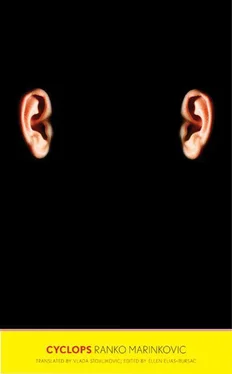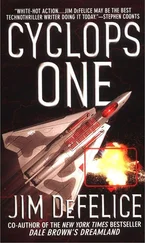Originality almost frightened Melkior with its literary coyness. With its seductive charm that diverts from real cares and smiles in the distance and holds out a promise of surprises to come. Originality might have lifted his spirits and plucked him out of tethering reality. But it would not have been a lasting liberation, it only meant a sweet hour of forgetfulness: a bit of Te Deum laudamus and a whiff of incense, with cares waiting around the next corner to throttle him. Lasting liberation required banality and nothing but banality, sickly sweet, dull banality, white all around and a tinge of illness, the terrace, the glaciers, the milk, and the golden girl.
Replete with Kumičić! With no exaltation, with no literary ambition, with no taste, without affectation, he built for himself a tableau depicting the liberation from the nightmare in a most primitive fashion, almost as a stupidity cult which Ugo would have jeered at with a vengeance if Melkior had been naïve enough to share with him his sanitarium, his Jelka’s Sprig of Basil , his consumptive delusion with a view of Alpine lakes.
And yet the shabby picture postcard gave him the strength to carry on down the road he had taken, offering a way out of an absurdity that threatened to swallow him whole.
He followed the screaming ambulances hurtling down the streets with their cargo of the diseased, the down-and-out, the victims of traffic accidents, the suicides, with engaged, almost envious eyes, and the hearses he all but cursed. He watched the bodies walking past his and compared those puny, no-account, gnomelike beings with his own health, strength, stamina, with his ability to perform anything that might be called Duty which could lay claim to his body. Give me a body, says Duty, and I will show you its strength.
His life was afraid of the life force within him. Here, look, all these moving, masticating, shouting, laughing organisms may have a fault in them, a crack, a tiny hole down which all the laughter and noise will seep away; there are all manner of stones, blockages, ulcers, caverns, all kinds of rheumatism, sciatica, deafness, disjunction, mutilation, right index finger missing, flat feet. The idiot! Long live the idiot! That is the safest kind of mimicry life can offer a being of its creation. From his vantage point the idiot watches history run its course without the danger of getting caught up in the action, just as we cry as we watch a film playing in the cinema. We mourn fictitious travails, while it’s only an idiot who laughs at genuine deaths. He jeers at life from his safe vantage point, taking his revenge for being rejected, smug at being spared. Life has chosen Intelligence for its games, it does not use idiots to make history. It has chosen geniuses for grand words on the cross, at the guillotine, at the gallows, facing the barrels of guns, in front of nations cheering the Brutuses and Caesars alike. An idiot ceded the cup of poison to Socrates. An idiot ceded to Danton the glory of being decapitated by history. (And then made it up to him by producing a marble bust of his head and raising it on a square as an example for future generations.) Whereas the idiot wears his head with a strange grimace of disgust, as if he had long since understood everything, sneered derisively, and stopped time in the rigid folds of his mindless face. Long live the idiot!
Melkior tortured himself with bitter, sardonic thoughts. As if he were ranting at a vast power — a god or a force like the collective mind of all men — he spoke like a lawyer and demagogue, preached with prophetic pathos, in the voice of a supplicant, he sought impact-making figures of speech, paradoxes, drastic examples, he championed “his cause.”
And saintlike, mortified his flesh. Tortured it with hunger, wore it down with vigils, never for a moment let it be. Burdened it with fabricated, superfluous worries, invented tasks in bed at night: one grain of wheat on square one, two on square two, four on square three, eight on square four, sixteen on square five, thirty-two on square six, sixty-four on square seven, a hundred and twenty-eight on square eight, two hundred and fifty-six on square nine, five hundred and twelve on square ten, a thousand and twenty-four on square eleven, two thousand and forty-eight on square twelve, four thousand and ninety-six on square thirteen, eight thousand one hundred and ninety-two on square fourteen, sixteen thousand three hundred and eighty-four on square fifteen, thirty-two thousand seven hundred and sixty-eight on square sixteen, sixty-five thousand five hundred and thirty-six on square seventeen, a hundred and thirty-one thousand and seventy-two on square eighteen, two hundred and sixty-two thousand one hundred and forty-four on square nineteen. … The number grew at a dizzying rate! He had only wanted to play a little game with arithmetic, and it came out a nightmare! Where was it all leading to, and what was the point? Through a small, innocent act of doubling, through the truly paltry mediation of the so beloved, popular, ordinary, friendly, familial, lovers’ number — the number two — grew an endless monster, the inconceivable body of infinity, as terrible as fear, as vast as eternity.
That, too, was a form of torture: infinity and eternity. For we have become accustomed to seeing things tamed by forms, harnessed to our limited needs, cut up into mouthfuls to fit our appetite. Things in costume, clean-shaven, groomed for parade, for show; the humiliation of matter, being reduced to a prop, a camera, a razor, a brush.
And things are weirdly superior and heedless. Undimensional. Infinite. And all the symbols that have grown above things — like clouds condensing into being above endless waters — roam inside our heads in the guise of thoughts, worries, wishes, daydreams. Tortures.
Melkior entered his torture chamber with delight. But there was no joy to his delight, only calculation. He took pleasure in reckoning that in the twists and turns among which he ran, in the labyrinths around which he raced blithely shouting at the top of his lungs, “I’ve disappeared, I’m not here,” he would really and truly disappear from the sight of the absurdity that lay in wait for him. That he would be invisible and elude those huge, hairy, greasy fingers getting closer to him whenever his thought faltered, whenever he forgot himself and surrendered to pleasure.
Over there, around the corner, is where he lives: a room with its own access overlooking the parade ground of the 35th Regiment barracks from across the street. And over here, before the corner, is the Cozy Corner, a small bar or café which Ugo calls a bistro. That is where Melkior drops in of an evening on his way home to “have a drink.” The Cozy Corner is run by a German family: a small pink pot-bellied father, his face certain of the importance of his existence, a long and lean mother speaking Croatian-German in a good-natured, comical way, a plump pale daughter, Else, who looked as if she recently quit a convent, shielding her femininity from male lust and dropping her gaze when serving the tables (as if she were serving at an altar), and the son, Kurt, narrow-shouldered, broad-hipped, and with a large blonde head. Cozy Corner was the local watering hole for the sergeants from the barracks of the 35th; Melkior often wondered why only sergeants, it may be that the establishment was the right match for their rank, or some such thing.
Melkior entered and was greeted by three members of the German family (the father was seldom seen, he was always off on his business rounds), but the mother’s greeting rang out, “Goot eefnink.”
The sergeants had taken the four sides of one table; on a corner chair sat demure Else, twiddling her fingers in her lap, her eyes downcast, naturally. Kurt was serving another table: a giant and a little old man in a white linen suit left over from summer. A half-pint each.
Читать дальше












